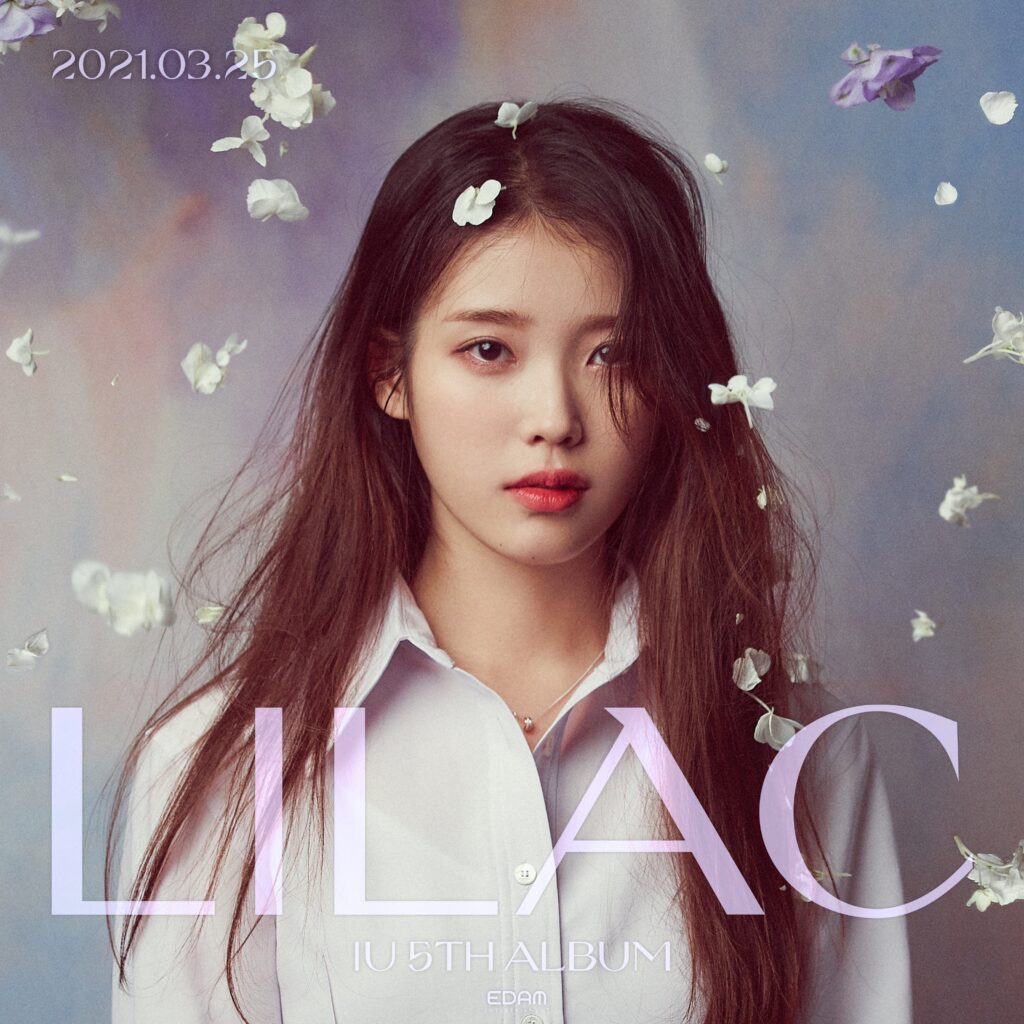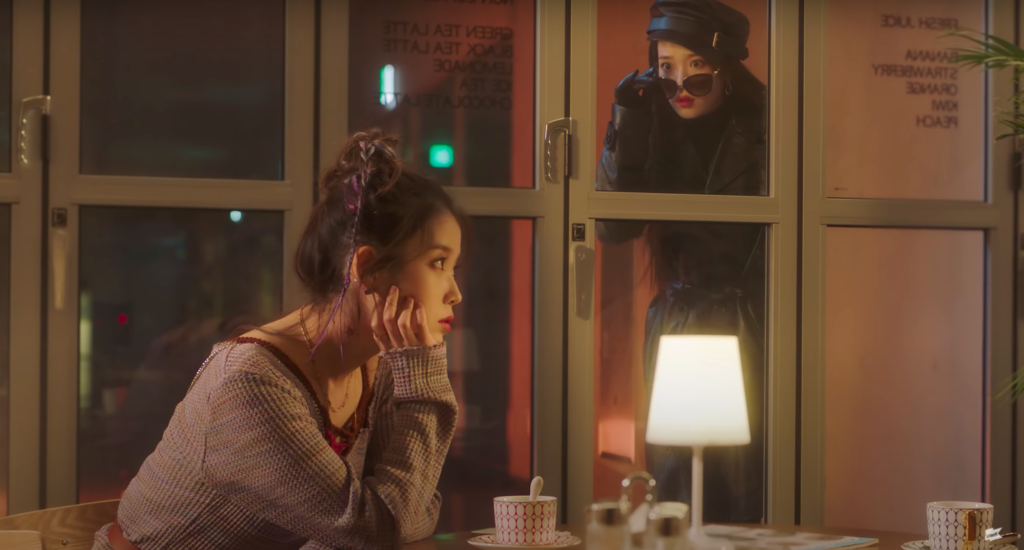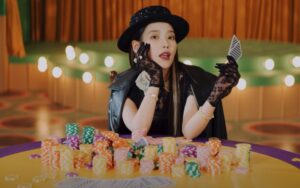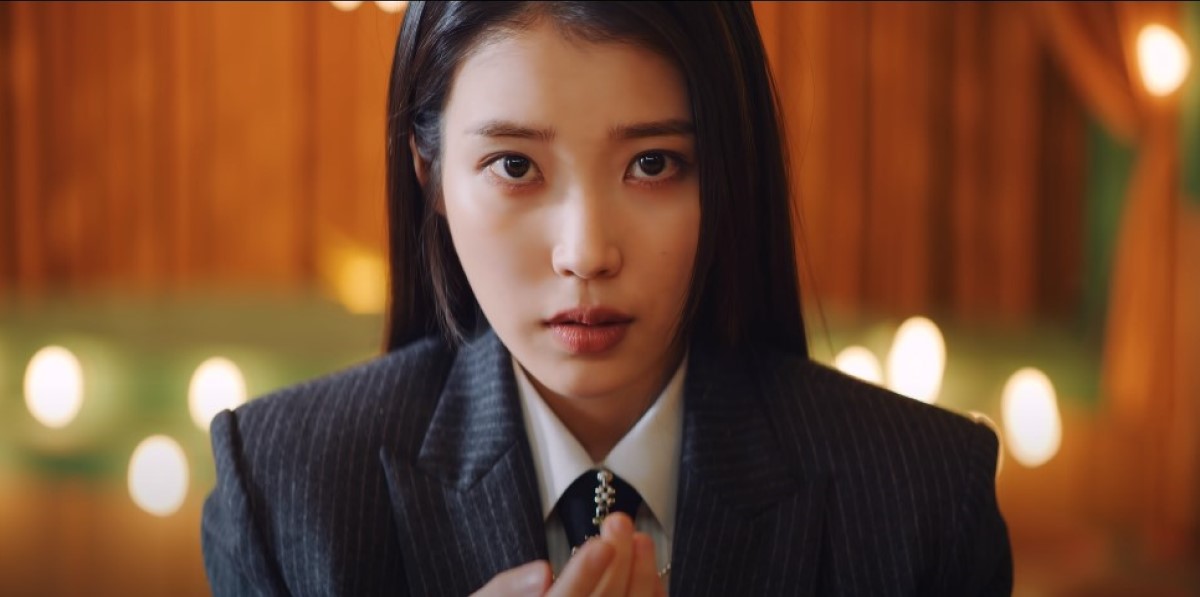
IU debuted as a solo artist when she was only 15 years old. She was forced to grow up under a magnifying glass as she struggled with her identity. IU referenced this rough transition in songs like “Twenty-Three” and “Palette,” where she remarked on the criticisms she faced. With her latest album, Lilac, she is ready to say good-bye to that time in her life as she continues growing as a person and an artist.
Lilac covers all aspects of IU’s youth, which include success, insecurities, broken relationships, and relationships that have only just begun. There is a strong preference for groovy and retro melodies that fit into the nostalgic tone behind the album. Unlike previous albums, IU decided not to include any self-composed songs in this album. It is a bold move for IU, but it shows she has trust in her producers. IU was also careful in selecting each song that would be part of this album. While other artists throw together different songs without any connection, every song on IU’s album has a purpose and fits with the overall theme.

The first single of Lilac was “Celebrity,” a song about self-reflection. The accompanying MV shows IU navigating through the pressures of fame while envying a different version of herself. The voice of the song gives a pep talk to someone, perhaps her younger self, in dealing with the being in the public eye. As the first released single, this helps to set the tone of the album.
IU went all out for this album and released two more singles with MVs for each one. “Lilac” and “Coin” both have in common groovy beats, but they cover different topics. “Lilac” is a symbol for youth and the lyrics express a celebration of that time. Instead of being sad that it is ending, the voice of the song rejoices in having these sweet memories. Meanwhile, “Coin” is about how unpredictability creates a more exciting life. “Coin” uses gambling to symbolize taking chances in life regardless of the consequences. Both songs help capture the essence of the album, and IU’s reflection of her youth.
“Hi Spring Bye” and “My Sea” are two ballads on the album that speak to the transitional phase of youth. In both songs, IU displays her breathy vocals and her capability to flawlessly hit high notes. However, it is her delicate way of singing the lyrics that helps depict the emotion behind every word. “Hi Spring Bye” is the aftermath of heartbreak, and acknowledges that there were happy memories. However, after some time, the voice of the song is now able to look back on the past relationship without any hard feelings.
“My Sea” is also about growth. The voice of this song first admits to their previous insecurities. Despite the mournful start of the song, the lyrics become uplifting as the voice declares they have moved past from having these feelings:
When I was young, there was an endless sea in my heart
That I was never able to hide
Now in the faintest places, only traces remain
IU has always had a preference for metaphors in her songs, and Lilac is chock full of them. “Flu” and “Ah Puh” are two mid-tempo songs that have more uplifting tones. With the current pandemic, “Flu” is a funny choice for IU to select as it compares the symptoms of the flu to love. The song is lighthearted and adds to the various facets of the album. “Ah Puh” uses surfing as a metaphor to show the voice’s ability to handle life. Like a surfer who jumps into waves, the voice of the song also keeps jumping into situations even if it can be dangerous. The song is similar to the tone in “Coins” by using risky behavior to indicate a fearless attitude.

“Troll” and “Empty Cup” are both about unhealthy relationships with no real solutions. Despite the subject, “Troll” has an upbeat melody and compares the relationship to a recurring tune. The track includes R&B artist, Dean, who features as the male voice of the song. Both sides admit to wrongdoing but not being able to stop going back to each other. The track on the album is followed by the mournful “Empty Cup.” In this track, the voice of the song no longer feels the same towards someone. The song repeatedly states, “I’m sick of your love,” as the voice admits to their wavering emotions. It is a breakup song that does not put the blame on anyone. The lows on this track, along with songs like “Flu” and “Ah Puh,” help balance out the album’s theme.
Many artists will add “Epilogue” songs to the end of their albums but this one truly summarizes the farewell concept of the album. If you did not know any better, you would think IU was retiring from music altogether. Like “Hi Spring Bye,” the voice acknowledges the events of the past and how they were relevant in shaping her life:
Was it good to know me?
Was it good to love me?
Are the old songs I would sing for us still comforting?

IU is still in her twenties so this good-bye feels a little premature. However, maybe for her, it is about letting go of her past and feeling confident about her current identity. Overall, the album had a cohesive concept that depicted the confusing mix of insecurity and excitement of one’s youth. It is the perfect album when you want to reminisce and a sweet good-bye for this section of IU’s career. We can also look forward to what IU will bring to her next comeback.
(Youtube. WKorea. Lyrics via Genius [1][2]. Images via Edam Entertainment.)



